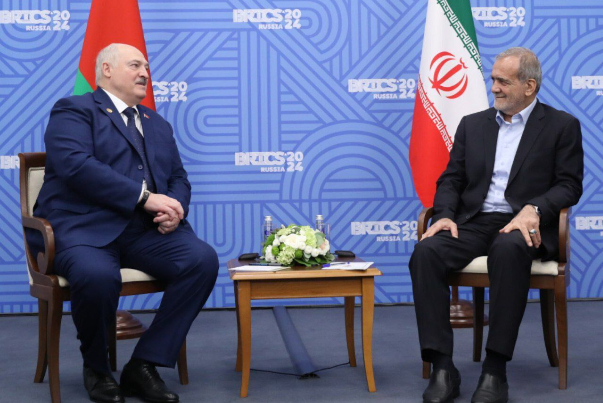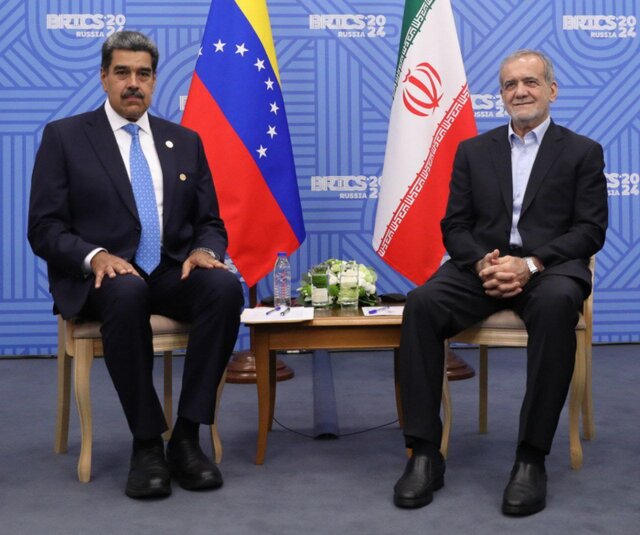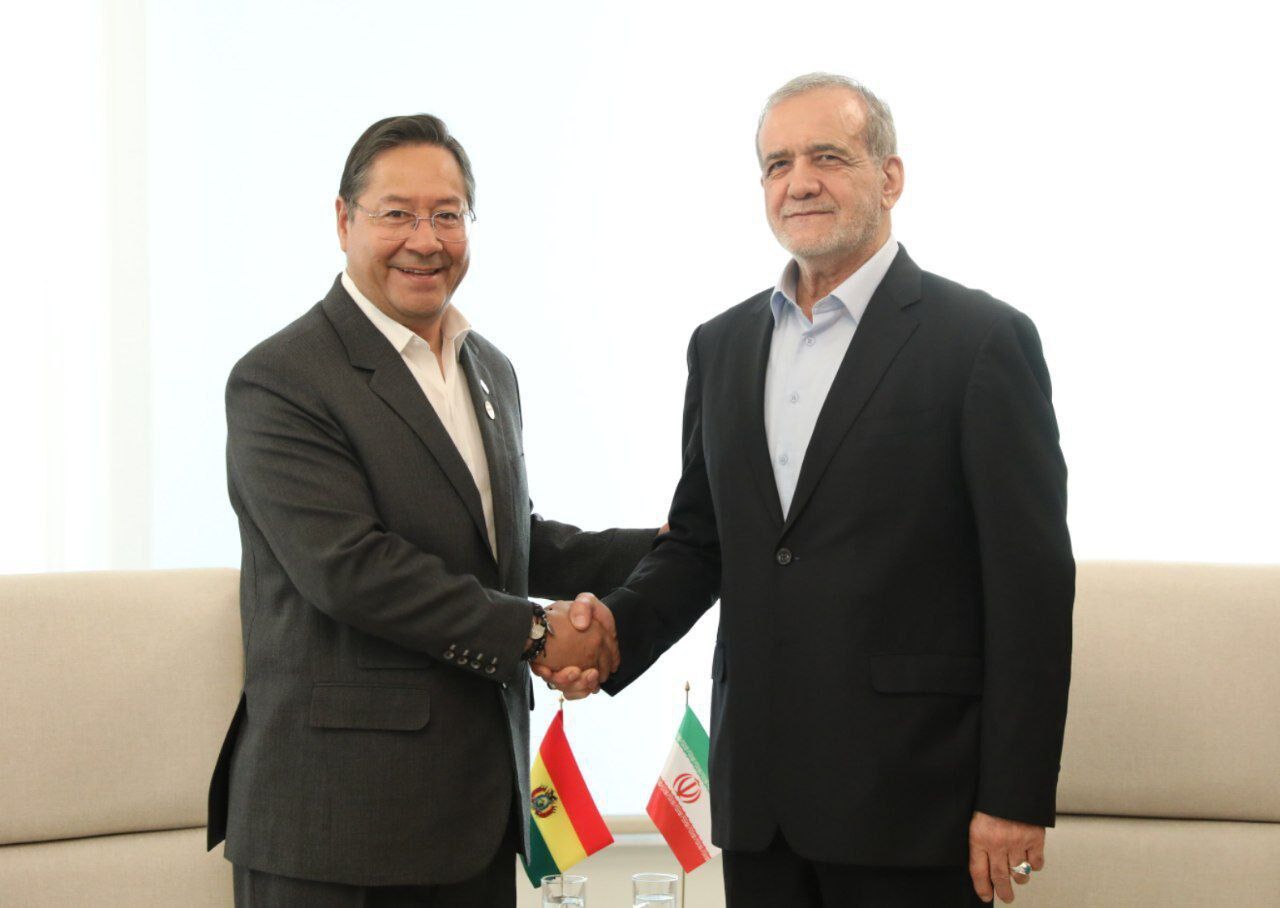Iran's President Masoud Pezeshkian and the Armenian Prime Minister Nikol Pashinyan on the sidelines of the BRICS summit in Kazan, Russia.
President Pezeshkian also met and talked with Aleksandr Lukashenko President of Belarus on Thursday.

Iranian President Masoud Pezeshkian and his Belarusian counterpart Aleksandr Lukashenko have discussed bilateral relations. Pezeshkian has said the pattern of the expanding interactions between Iran and Russia can also be extended to Belarus.
Referring to the end of unilateralism and the imposition of harsh sanctions, the Iranian president said that the US and other Western countries have also realized that significant changes are occurring globally, which they cannot affect, whether they approve of them or not.
President Pezeshkian further asserted that the US will not succeed in using sanctions to undermine independent countries, emphasizing, "Today, the world is no longer following the US, and independent countries have managed to overcome US totalitarianism through extensive cooperation in various contexts, including regional and international organizations."
Lukashenko invited President Pezeshkian to visit Belarus, emphasizing his country's readiness to expedite the implementation of agreements with Iran.
He noted that the two countries have a variety of fields and opportunities to enhance their relations, and Belarus is prepared to exchange experiences and mutual capabilities with Iran.

Pezeshkian, during discussions with his Venezuelan counterpart Nicolas Maduro on the sidelines of the 16th BRICS Summit in Kazan, Russia, emphasized that the future belongs to those who seek freedom, justice, and independence, saying that colonialist powers cannot stop them.
Pezeshkian asserted that BRICS and independent countries can deepen their ties despite the unilateralism and totalitarianism of Western states, and work towards establishing a new global order. He reiterated that colonialism cannot hinder those pursuing freedom and justice.
Furthermore, the president referred to Iran’s ballistic missile strike on Israeli military and security targets, which was in response to the assassination of Hamas leader Ismail Haniyeh in Tehran, stating that the operation was part of Iran’s legitimate right to self-defense. He also warned that the entire West Asia region could face increased tension and conflict if the Israeli regime continues its aggressive actions.
Pezeshkian noted that Iran showed restraint in face of the Israeli regime in order to facilitate progress in Gaza ceasefire talks.
Maduro, for his part, asserted that the current conflict is not limited to Palestinian territories but reflects a broader attempt by the Israeli regime to exert control globally, likening it to an octopus.
He compared this to Fascism and Nazism, which sought to dismantle the old international order, stating that Zionists are attempting to circumvent the UN.
Maduro stressed the importance of unity among independent nations against what he termed as the deceptive diplomacy practiced by Western governments.
He also highlighted that Western states are imposing their hegemony through war, violence, sanctions, and economic pressure. In the wake of current conditions, he emphasized the necessity of enhancing relations among independent countries through cooperation in regional and international alliances like BRICS.

The presidents of Iran and Bolivia also held talks on issues of mutual interest, underscoring the need to expand bilateral cooperation.
On Thursday, Bolivian President Luis Arce Catacora came to President Masoud Pezeshkian’s residence in Kazan, Russia, to discuss key areas of cooperation, bilateral relations, and international issues.
During the meeting, which was held on the sidelines of the 16th BRICS summit, the Iranian president emphasized the necessity of expanding cooperation in light of mutual capacities and opportunities.
Pezeshkian also referred to the ongoing crimes committed by the Israeli regime and its attempts to escalate tensions, stating that the only solution to halt this trend and restore peace and tranquility to the region is to end the unwavering support of the US and certain Western governments for the Tel Aviv regime.
The Bolivian president, for his part, expressed his country's interest and readiness to enhance relations with Iran in various fields.
Arce Catacora also voiced concern over the expansion of tensions in the West Asia region, calling for pressure on the Israeli regime to stop the war and avoid further escalation.
The Iranian president concluded his three-day visit to Russia and headed back to Tehran on Thursday evening. In Russia, he participated in the BRICS and BRICS Plus summits.
This trip marked Pezeshkian's first visit to Russia and his fifth foreign trip since he took office in late July.
IRNA/MNA